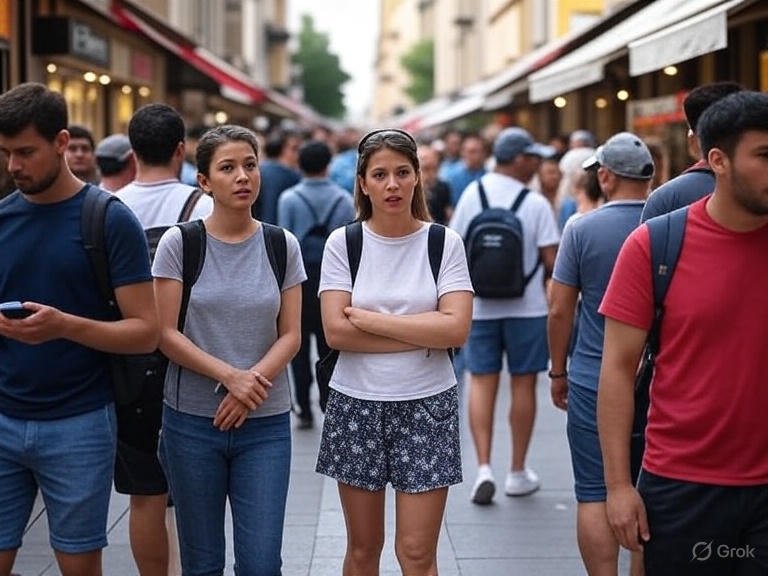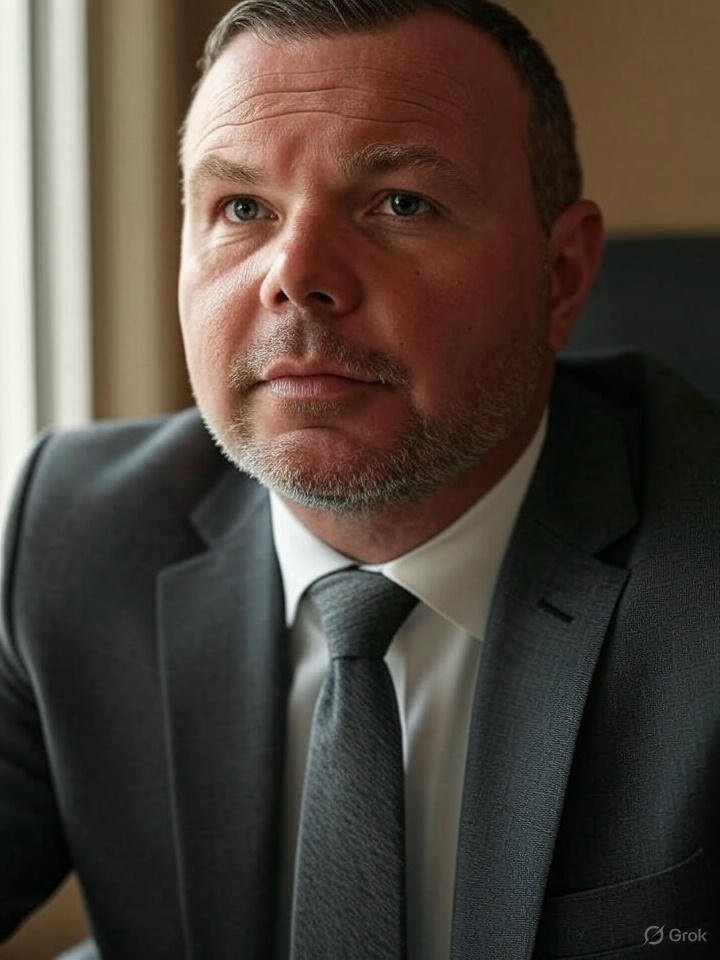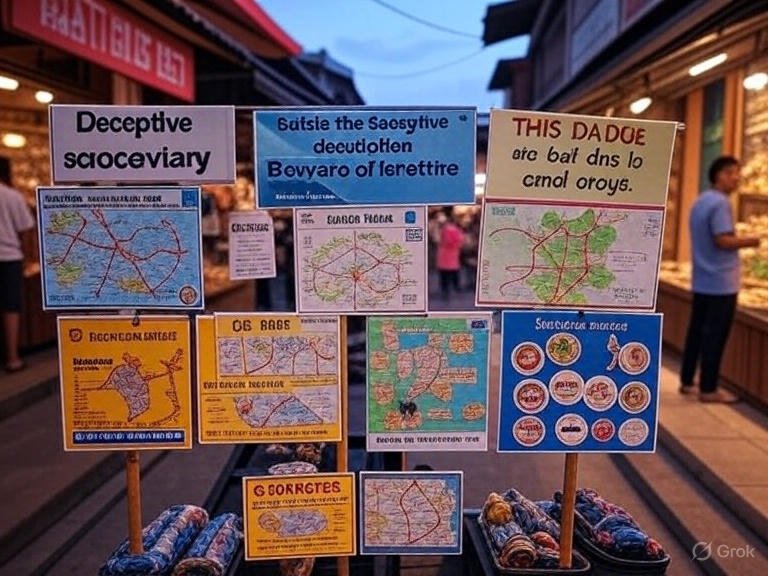Travel is exciting. You see new places. You meet new people. But some people trick travelers. They pretend to be tour guides. They take your money or make you unsafe. This article helps you know these tricks. It tells you how to stay safe in 2025. Warren Driscoll wrote this. He knows a lot about travel. He has traveled to places like Ibiza and the French Alps for seven years. His stories are in big magazines like Le Collectionist. He shares true tips to help you travel well.
Why Scammers Trick Travelers
Travelers are easy to fool. You may not know the local language. You may not know what things cost. Scammers see this. They work in busy places like Paris, Bangkok, or Rome. They smile or show fake badges to seem nice. In 2025, scams are growing. More people travel now. Scams go up 35% in busy tourist spots, says the Mastercard Economics Institute. Knowing these tricks keeps you safe.
Top Tour Guide Scams in 2025
Scammers have many ways to trick you. Here are nine common tour guide scams. Each one has a story and tips to stay safe. These are new for 2025 and based on real reports.
Fake Tour Guide Badges
Some people say they are real tour guides. They show fake badges. They find you near big places like the Colosseum in Rome. They offer cheap tours. But the tours are bad. They may take you to shops that cost too much.
In 2023, a traveler in Paris met a man near the Louvre. He said he was a guide. He showed a badge. He charged €50 for a tour. The tour was short. The facts were wrong. It ended at a shop with pricey gifts.
To stay safe, check the guide’s badge. Real guides have licenses. Countries like those in the World Federation of Tour Guide Associations give official IDs. Ask to see the ID. Call the local tourism office to check it. Book tours with trusted sites like Viator. To learn more, read How to Find a Trusted Tour Guide in Any Country. If someone comes to you, say no and walk away.
“Closed Place” Scam
Scammers say a famous place is closed. They say it’s a holiday or broken. They offer to take you to another place. Often, it’s a shop. In Bangkok, near Wat Pho temple, they say it’s closed. They take you to a jewelry store instead.
In 2024, a traveler in Thailand heard the Grand Palace was closed. A kind man offered a cheap ride to a “temple.” It was a shop. The traveler paid €200 for fake gems.
Check the place’s hours online. Most big places, like the Grand Palace, have websites. If someone says it’s closed, go to the entrance. Never go with a stranger to a new place.
Expensive or Fake Tours
Some scammers sell tours that sound great. But they are bad or fake. They promise special entry but give nothing. In 2022, a family in France paid $275 for a Versailles tour. The guide left early. They lost their money. They could have paid $60 for a train and tickets.
Book with the place itself or sites like Tripadvisor. Read what other travelers say. If a tour is too cheap, it might be a scam. Ask for a receipt before you pay. To avoid hiring the wrong guide, check our article about The Traveler Hired the Wrong Tour Guide.
“Free” Tour Trick
A nice person offers a free tour or gift, like a map. Later, they ask for a big fee. Or they take you to a shop. In Athens, in 2022, a traveler got free ouzo from a man. He led them to a bar. The bill was €90. A guard blocked the door until they paid.
Say no to free things from strangers. If someone pushes, walk away. If you must pay, give only what you can. Then leave. Tell the police or your embassy.
Fake Photography Tours
Photography tours are fun. But some guides lie. They promise special spots but take you to normal places. Or they cancel after taking your money. In 2021, a U.S. tour company hired a guide. He canceled the tour. He kept thousands of dollars.
Check the guide or company. Read reviews on Tripadvisor. Ask other travelers. Make sure the guide has permits for special places, like parks. Book with groups like the North American Nature Photography Association.
“Nice Local” Scam
Some scammers act like kind locals. They offer to show you a secret spot. Then, they charge a big fee. Or they take you to a shop. In Cuba, in 2023, a couple met a “guide” in a company shirt. He took them to a music show. It was a bar with expensive drinks.
Be careful with kind strangers. Ask your hotel for help. Keep money in a hidden pouch, not your pocket. If someone offers to guide you, say you have plans.
Fake Tickets
Scammers sell fake tickets for places or trains. The tickets look real but don’t work. In Rome, in 2024, a traveler bought a €100 train ticket at Termini station. It was fake.
Buy tickets from official places, like the site’s counter or Ticketmaster. Check for barcodes. Say no to street sellers. Use a credit card to dispute charges if needed.
ATM or Money Tricks
Fake guides offer to help at an ATM. Or they swap money for fake cash. In Paris, in 2023, a “guide” helped a traveler at an ATM. He saw their PIN and stole money.
Never let strangers help at an ATM. Cover the keypad when you type your PIN. Swap money at banks. Check your bank account every day when you travel.
Pushy Shop Sales
Some guides take you to shops or restaurants. They push you to buy things. They get money for bringing you. In Istanbul, in 2024, a traveler went on a “free” tour. The guide took them to a carpet shop. The owner pushed for a $500 rug. The traveler felt scared.
Tell guides you don’t want to shop. If you feel pushed, leave the shop. Tell the police about the guide. Pick tours that focus on the place, not shops.
Why Scammers Choose Tourists

Tourists are easy targets. You may not know the language. You may be tired or excited. Scammers use this. They work in teams. One person talks to you. Another steals or sells. In busy places like markets, scams happen fast. Knowing these tricks helps you stay safe.
Signs of a Fake Tour Guide
Fake guides act the same way. Here are signs to watch:
- They come to you without you asking.
- They offer cheap or free tours.
- They won’t show a real license.
- They push you to decide fast or go to a shop.
- Their stories change when you ask questions.
If you see these, walk away. Trust your feelings. Real guides don’t act pushy.
How to Stay Safe from Scams
You can stay safe with these steps. They work for 2025 travel.
Check Before You Go
Learn about scams in your travel spot. Read blogs or forums like Reddit’s r/travel. A 2024 Reddit post warned about tuk-tuk scams in Bangkok. Know these risks. Find official tour companies on sites like Tripadvisor.
Book with Safe Companies
Use trusted sites like Viator or Expedia for tours. Check if the company is in groups like the World Federation of Tour Guide Associations. Ask your hotel for licensed guides. Don’t book with people on the street.
Look at Licenses
Ask to see the guide’s license. In places like New York, guides need a license from the city. Check with the tourism office. If a guide won’t show ID, find another one.
Use Official Places
Buy tickets from the place’s website or counter. The Louvre’s site has clear prices. Don’t use unknown sellers. Pay with a credit card to dispute charges if needed.
Watch in Busy Places
Scammers like crowded spots like stations. Keep money in a hidden pouch. Don’t share personal details. If someone offers help, say you’re okay.
Trust Your Feelings
If something feels bad, it might be a scam. Scammers use your kindness. It’s okay to say no and leave. If a guide is pushy, find another.
Tell Someone About Scams
If you get scammed, tell the police or your embassy. In the U.S., tell the FBI’s Internet Crime Complaint Center at IC3.gov. Share your story on Tripadvisor to warn others.
Stories from Real Travelers
Stories help you see scams. Here are two from 2024 and 2025:
In 2024, a couple in Rome met a man offering a Colosseum tour for €30. He had a badge and spoke good English. The tour was short and wrong. It ended at a shop with €200 gifts. Real tours cost €15 on the official site.
In 2025, a traveler in Vietnam got a free boat tour from a “local.” It ended at a restaurant with a €100 bill for food they didn’t order. They paid to leave but told their embassy. This warned other travelers.
These show why you must check offers and trust official sources.
New Scams with Technology in 2025
Scammers use new tricks in 2025. They make fake websites that look real, like “louvre-tickets.com” instead of “louvre.fr.” They send emails or texts pretending to be tour companies. They ask for money upfront. A 2021 Reddit post told of a fake WhatsApp guide asking for payment.
Check website addresses. Use WhoIs.com to see who owns the site. Don’t click links in strange emails or texts. Pay with credit cards, not wire transfers. Apps like Voye Global’s eSIM help you stay online to check things or call for help.
Why This Guide Is Trustworthy
Warren Driscoll wrote this. He has traveled to 50 countries for seven years. He writes for big names like Le Collectionist. His tips come from real trips and trusted sources like the Federal Trade Commission. This guide uses true stories and checked facts to keep you safe.
What to Do if You Get Scammed
If a scam happens, stay calm. Do these steps:
- Tell the police or tourism office. Give details about the scammer.
- Call your embassy. They help with lost money or papers.
- Dispute charges with your bank if you paid by credit card.
- Share your story on Tripadvisor or Reddit to warn others.
- Get travel insurance before you go. It can cover scam losses.
Final Tips for Safe Travel in 2025
Scams don’t have to ruin your trip. Learn about your travel spot. Book with trusted companies. Check licenses. Use official websites. Keep money safe. Trust your feelings. If a deal seems too good, it’s not real. With these tips, you can travel without worry.
Warren Driscoll’s guide gives you tools to avoid tour guide scams. Stay smart and safe. Share this with other travelers to help them in 2025.
Disclaimer: This article helps you learn about tour guide scams. It is written to give you true and helpful tips. Warren Driscoll, who wrote it, knows a lot about travel. He uses real facts and stories. But things can change. Scams may be different in some places or times. Always check with local police, tourism offices, or trusted websites before you travel. This article is not a promise that you will never get scammed. Use your own care when traveling. If you have questions, ask a trusted person or group.

Warren Driscoll writes about luxury travel. He has over seven years of experience. Since 2018, he has stayed in private villas in Ibiza and Saint-Tropez, and chalets in the French Alps. Warren’s stories have been shared by Indvidual Magazine. He writes honest reviews and gives helpful tips to help people plan great holidays. He also shares his own photos and real experiences to make his advice clear and useful.
